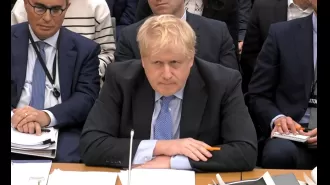Volkswagen may shut down factories in Germany for the first time ever.
Volkswagen is considering shutting down German factories for the first time to cut costs and compete with China's electric vehicle companies.
September 3rd 2024.

Volkswagen, one of the largest car companies in the world, is currently facing a difficult decision. For the first time in its 87-year history, the German automaker is considering the possibility of closing factories in its home country. This comes as the company strives to reduce costs and stay competitive in the face of rising competition from Chinese electric vehicle makers.
In a statement released on Monday, Volkswagen acknowledged that plant closures in Germany may be necessary. They also mentioned other measures that they are exploring in order to "future-proof" the company. One of these measures is the termination of an employment protection agreement with labor unions, which has been in place since 1994.
According to Volkswagen Group CEO Oliver Blume, the European automotive industry is currently facing a very challenging situation. "The economic environment has become increasingly tough," he stated, "and we are seeing new competitors entering the European market." Blume also pointed out that Germany, as a manufacturing location, is falling behind in terms of competitiveness.
Last year, Volkswagen began a €10 billion cost-cutting effort, but it seems that these efforts have not been enough. The company's market share in China, their largest market, has been declining and deliveries to customers in that country have dropped by 7% in the first half of this year. As a result, group operating profit has also decreased by 11.4%.
The main focus for Volkswagen now is to cut costs. Blume emphasized this during an earnings call last month, stating that they have already taken all necessary organizational steps and now it's all about reducing expenses in areas such as factories, supply chain, and labor. However, this plan will not be easy to implement, as labor representatives hold almost half of the seats on the company's supervisory board.
The powerful German union IG Metall has already expressed their disapproval of Volkswagen's cost-cutting plans. They blame mismanagement for the company's current struggles and have vowed to fight to protect jobs. According to IG Metall's lead negotiator Thorsten Groeger, the board's plan is "irresponsible" and puts jobs and locations at risk. "We will not tolerate plans that the company makes at the expense of the workforce," he stated firmly.
Volkswagen currently employs almost 683,000 workers worldwide, with 295,000 in Germany alone. Thomas Schaefer, the CEO of Volkswagen passenger cars, assured that the company is still committed to Germany as a business location. He also mentioned that they will start discussions with employee representatives immediately in order to find a sustainable way to restructure the brand. "The situation is very tense," Volkswagen stated, "and we cannot simply solve it through cost-cutting measures."
In a statement released on Monday, Volkswagen acknowledged that plant closures in Germany may be necessary. They also mentioned other measures that they are exploring in order to "future-proof" the company. One of these measures is the termination of an employment protection agreement with labor unions, which has been in place since 1994.
According to Volkswagen Group CEO Oliver Blume, the European automotive industry is currently facing a very challenging situation. "The economic environment has become increasingly tough," he stated, "and we are seeing new competitors entering the European market." Blume also pointed out that Germany, as a manufacturing location, is falling behind in terms of competitiveness.
Last year, Volkswagen began a €10 billion cost-cutting effort, but it seems that these efforts have not been enough. The company's market share in China, their largest market, has been declining and deliveries to customers in that country have dropped by 7% in the first half of this year. As a result, group operating profit has also decreased by 11.4%.
The main focus for Volkswagen now is to cut costs. Blume emphasized this during an earnings call last month, stating that they have already taken all necessary organizational steps and now it's all about reducing expenses in areas such as factories, supply chain, and labor. However, this plan will not be easy to implement, as labor representatives hold almost half of the seats on the company's supervisory board.
The powerful German union IG Metall has already expressed their disapproval of Volkswagen's cost-cutting plans. They blame mismanagement for the company's current struggles and have vowed to fight to protect jobs. According to IG Metall's lead negotiator Thorsten Groeger, the board's plan is "irresponsible" and puts jobs and locations at risk. "We will not tolerate plans that the company makes at the expense of the workforce," he stated firmly.
Volkswagen currently employs almost 683,000 workers worldwide, with 295,000 in Germany alone. Thomas Schaefer, the CEO of Volkswagen passenger cars, assured that the company is still committed to Germany as a business location. He also mentioned that they will start discussions with employee representatives immediately in order to find a sustainable way to restructure the brand. "The situation is very tense," Volkswagen stated, "and we cannot simply solve it through cost-cutting measures."
[This article has been trending online recently and has been generated with AI. Your feed is customized.]
[Generative AI is experimental.]
0
0
Submit Comment





